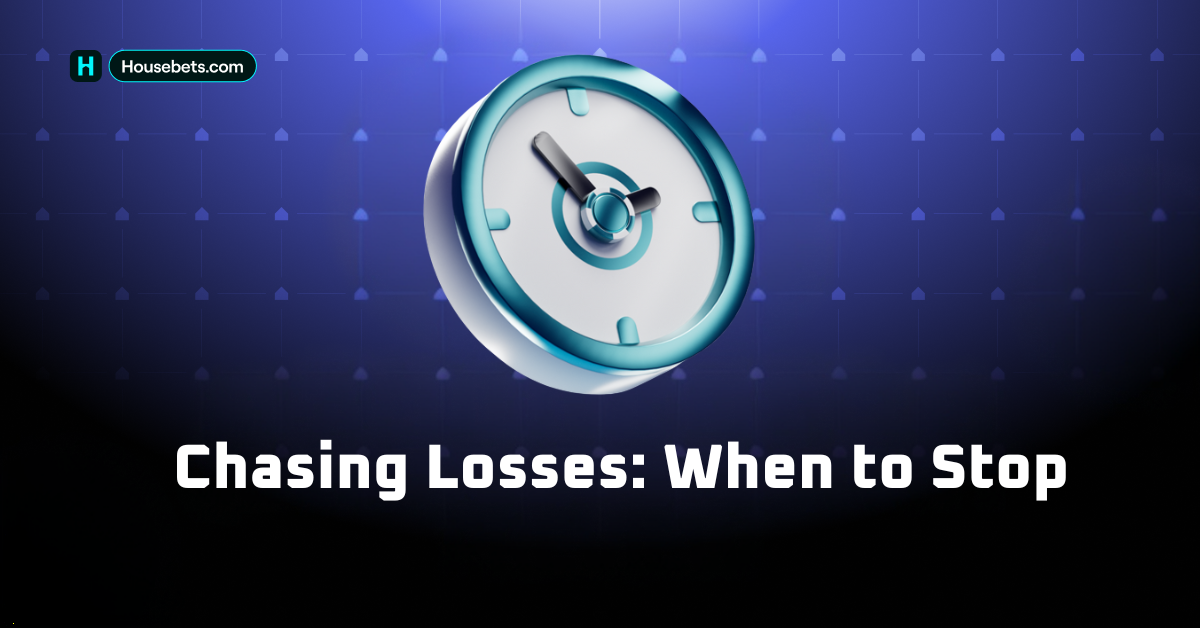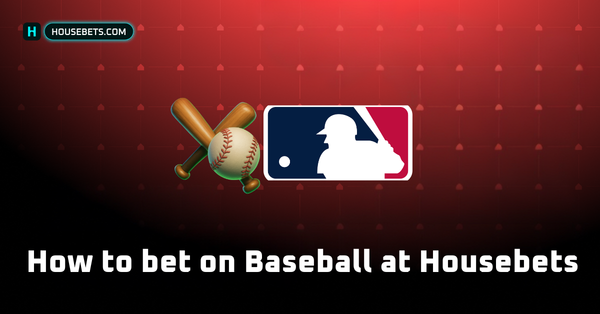Chasing Losses: When to Stop
Gambling at Housbets is always fun because we provide our players with a safe gaming environment.

Gambling at Housbets is always fun because we provide our players with a safe gaming environment.
One common habit among online gamblers is chasing losses and going all-in when placing bets.
In fairness, it is a common habit in the online gambling community. Although it is not a bad thing, per se, it is just important to know when to stop.
Given how accessible gambling is right now, thanks to the popularity of online casinos like Housebets, it is easy to make the mistake of chasing losses and going all in.
However, this is a habit that needs to be controlled, else you are likely to go down a rabbit hole that might be difficult to recover from.
In truth, everyone chases losses, but you need to know when to stop and maintain the habit of practicing responsible gambling.
The logic behind chasing losses in online gambling
As stated above, chasing losses in online gambling is a normal human reaction due to what the brain tells us.
In gambling, you are most likely going to lose money, and it is only normal for your brain to tell you to try to recover the money you have lost by placing more bets.
This behaviour is driven by a concept called ‘loss aversion’ in behavioural economics. This simply means that the emotional impact of a loss is felt more intensely than the joy of an equivalent gain.
For example, if you win $100 from a bet and you lose $90 after winning the $100, you will feel more pain from losing $90 than the happiness gained in winning the initial $100 you won.
Even though you still had $10 gain, you will still feel pained that you lost $90.
Also, gamblers believe the fallacy that every loss is a step closer to a bigger payout.
Irrespective of the game or what you are betting on, you do not have control over the outcome, so a loss does not guarantee you will win next time.
The dangers of chasing losses in gambling
Chasing losses takes an emotional and financial toll on your life because the more you try to recover, the deeper you get into debt.
It does not just take a financial toll on your life, but also takes over your life. You get to a point where all you are thinking about is gambling.
Once it starts taking a financial toll on your life, you start borrowing money to fund your bets, which is not a good thing.
Even when you place these bets, you will not be able to make rational decisions because you are chasing a big payday to recover all that you have lost.
Emotionally, you start feeling anxious before placing a bet because you are afraid of losing money again.
Signs of Chasing Losses
- Feeling anxious before placing a bet
- Going past the budget you set
- Increasing your staking amount to recover all that you have lost
- Borrowing money to place your bet
- Avoiding your responsibilities at home and work
- Taking Loans to bet
- Using all your earned income on gambling
How to avoid chasing losses
While it is fine to try to aim for profit, it is also important to learn how to manage losses and know when to stop.
First things first, you need to set a budget for yourself. This budget could be weekly, daily, or per session.
Once you exhaust the budget, you should stop and regroup for another time. Do not make the mistake or fall into the temptation of depositing additional money after exhausting your budget.
Secondly, take breaks in between, especially when you are on a losing streak. See gambling as a side hobby and do not make it your life.
A break will go a long way in helping you feel refreshed ahead of next time. It will also provide clarity when you next come back and play.
Thirdly, always remember that the House will always have the edge, and losses are part of the game. Once you have this at the back of your mind, it will help you deal with losses better.
Remember, the goal is to always practice responsible gambling. At Housebets, we believe in responsible gambling.
However, if you believe your gambling has reached an unhealthy level, we strongly urge you to take a cooling-off period via our Self-Exclusion section or visit Gamble Aware.



